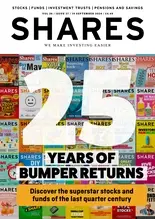
Low interest rates have triggered an ‘unprecedented corporate credit binge of excess spending, especially on share buybacks’, says ultra-bearish Societe Generale analyst Albert Edwards.
And the economist, whose analysis is not the house view of Societe Generale, claims increasing debt loads in the corporate sector combined with rising wages and weak revenue growth will cause a margin squeeze which could plunge the US back into recession.
Central bank inaction on interest rates has prompted US corporate debt issuance to accelerate at an annualised rate of $674 billion (£443 billion) approaching highs reached in 2007.
And Edwards believes it is now too late to rein in this excess without causing another crushing financial and economic recession in the latest Global Strategy Weekly note published on 12 November.
‘The deeply held wish of central bankers not to de-rail the fragile economic recovery is on display for all to see as they grasp at the slightest excuse for their continued inaction,’ Edwards writes.
‘The UK’s central bank governor, Mark Carney, exceeded all dovish expectations recently in his latest rate flip-floppery. But what is this? The Fed has finally summoned up its courage and looks set to raise rates next month. It is, however, already too late.
‘Having delayed way beyond the point when it might typically have raised rates in previous cycles, it has allowed an Orc-like monster to incubate, hatch and emerge into the sunlight, snarling and ready to do battle.
‘Free Fed money has led to an unprecedented corporate credit binge of excess spending, especially on share buybacks. This is even bigger than it was at the time of the 2000 technology and telecom bubble.
‘The rotten fruit of the Fed’s seemingly innocuous inaction will now be clear to onlookers as it is ripped to shreds on the battlefield by the powerful credit monster. The global economy will be thrown into chaos.'
Edwards argues Federal Reserve data underestimates the pace of wage inflation, which he claims has been accelerating for some time.
‘The latest employment report seems to provide enough grist for the Feds old cobweb-covered interest rate mill. It now looks like it will at last get out the oil can and crank it back into action,’ says Edwards.
‘The acceleration in average hourly earnings seen in the October payroll report towards 2.5% year-on-year was long overdue. The problem with the Fed focusing on this measure to assess early signs of wage inflation is that it is not mix adjusted.
‘It can for example rise without any wage inflation if employment in higher paid jobs grows quickly over the month.
‘So conversely, severe weakness in higher paid manufacturing jobs over the past year or so may have artificially held back the average hourly earnings measure of wage inflation and given us the impression of benign underlying wage inflationary pressures.’
A combination of rising wages alongside the widely discussed revenue weakness in the corporate sector, especially in the energy sector, could be the precursor for an almighty margin squeeze, Edwards says.
‘But what is squeezing margins even tighter is the evaporating pricing power, with corporate output price inflation slowing sharply to 0.8% year-on-year from 1.8% one year ago,’ writes Edwards.
‘With company revenues also declining this margin squeeze fatally undermines corporate profits and is central to our conviction that the US economy will be driven back into recession.
‘And in a typical recession, where corporate profits fall sharply, what the corporate sector does not want is too much debt.
'Oh dear, too late!’
Edwards continues to favour low exposure to equities and relatively high holdings of government bonds in particular and also cash.




